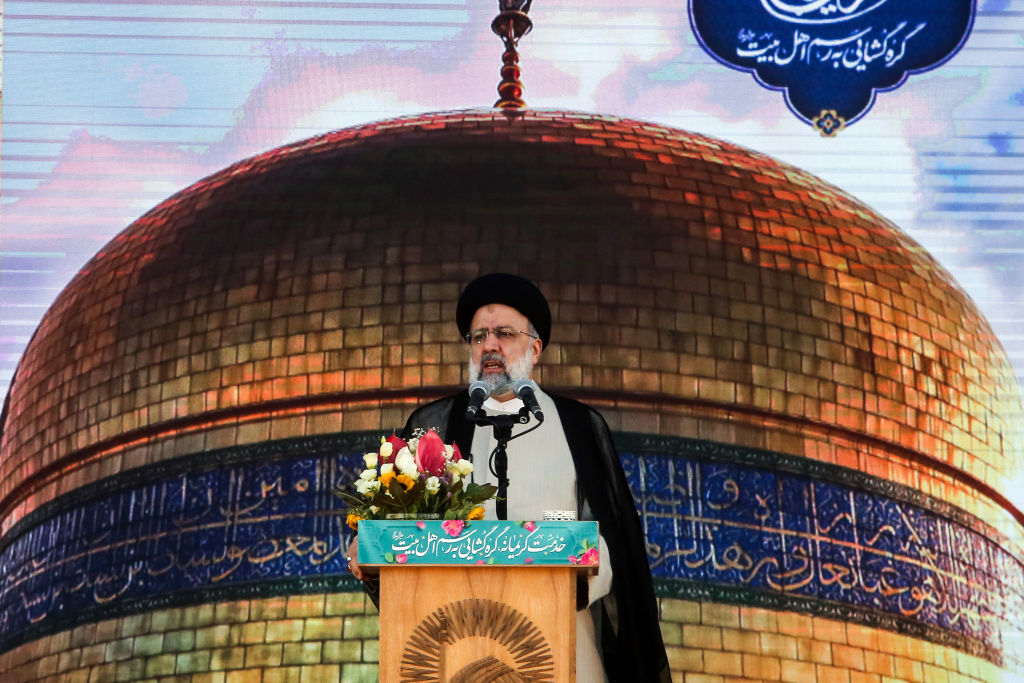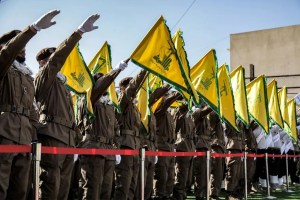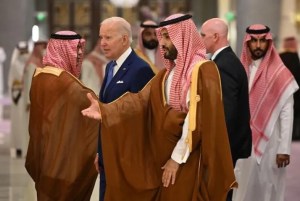The president is a placeholder for the people who really run the country. The elections were rigged. And most of the American media cheers along.
No, not the United States: Iran. The peace-loving, centrifuge-spinning, flag-burning regime has a new president, Ebrahim Raisi. The Biden administration did promise us a new era in US-Iranian relations, and here it is: Raisi will be the first Iranian president to take office while under sanctions for mass murder.
In the 1980s, Raisi was a young regional prosecutor. He was part of a four-man ‘death committee’ which ordered the disappearance and killing of thousands of the Islamic revolution’s enemies. You may be shocked to hear human rights’ groups claiming that due process was frequently ignored during this judicial massacre.
This wasn’t just youthful exuberance. Amnesty International notes that when protests against the clerical dictatorship broke out in 2019, Raisi, as head of the Iranian judiciary, granted blanket impunity to government officials and security forces responsible for unlawfully killing hundreds of men, women and children, and subjecting thousands of protesters to mass arrests and at least a hundred to enforced disappearance, and torture and other ill-treatment’.
Raisi is what Hannah Arendt would have called a schreibtischtäter, a ‘desk murderer’: a functionary who orders dirty work while keeping his own hands clean. Amnesty calls for his prosecution for ‘crimes against humanity’. The New York Times, adopting the vocabulary of Clueless, calls this an ‘awkward predicament’ for American diplomats. It’s more than awkward, and more than clueless: it’s deeply incoherent and dangerous.
For four years, the Democrats told us that Donald Trump’s transactional approach to foreign policy wasn’t amoral, but deeply immoral. Trump, we were told, was the dictators’ friend, and such intimacies undermine American interests abroad and American values at home. President Biden affirmed this in February when he gave his foreign-policy mission statement:
‘We must start with diplomacy rooted in America’s most cherished democratic values: defending freedom, championing opportunity, upholding universal rights, respecting the rule of law and treating every person with dignity.’
This, Biden said, is the foundation of America’s ‘global power’ and its ‘abiding advantage’.
Meanwhile, Antony Blinken and his team beg the Iranian negotiators for a deal in Vienna, even as more evidence of Iranian cheating comes to light. Reentry into the JCPOA has become an idée fixe for the Democrats, an ideological end to itself: an amulet against the black magic of Trumpism, a piece of paper to paste over the memory of Benjamin Netanyahu denouncing President Obama and the Iran Deal to Congress, a vanity at odds with the nuclear-tipped reality.
Raisi has already said he won’t meet Biden. He has issued a ‘non-negotiable’ rejection of the American goal of adding Iran’s ballistic missile program and support for terrorism to follow-on negotiations. The Iranian negotiators will use the prospect of Raisi taking office in August to lever more concessions from the desperate Americans. But the election of Raisi in the first place has already confirmed the futility of returning to the Iran Deal.
Extensive areas of Iranian policy fall outside the presidential purview. These include such urgent necessities as murdering dissidents overseas; supplying IEDs, rockets and drones to Iraqi militias to use against Americans; subverting what remains of the state of Lebanon; revving up the centrifuges; and of course that habitual pursuit of peace-loving regimes down the years, building secret nuclear installations under mountains.
It is the Supreme Leader, 82-year-old Ayatollah Khameini, who heads the Iranian regime, and the military-industrial complex controlled by the IRGC that is its arms and legs. Raisi is a product of their interdependence and corruption. He may yet inherit Khameini’s throne. This is one reason why the pro-Democratic ‘echo chamber’ is spinning his merits in sequence with the centrifuges.
‘For Biden, Iranian Hard-liner May Be Best Path to Restoring Nuclear Deal,’ says the Times. ‘Could Iran’s New President Be Nixon to America’s China?’ asks Slate, boldly defying past and present realities. Nixon’s America was the stronger power, a portal to the global markets. It is Mao’s China, a weak and economically feeble police state, that modern Iran resembles.
Raisi won the presidency in rigged elections with the lowest turnout in Iran’s post-1979 history: 48 percent nationally, down from over 70 percent in 2017, with only 28 percent bothering to vote in Tehran. His victory, then, reflects the hardening and decay of a revolutionary regime increasingly at odds with its subjects. The denouement may take decades: the faltering of the Soviet economy drove Khrushchev to pursue a ‘thaw’ in relations with the US in 1963-64, but it took another 25 years for the Soviet Union to collapse.
The Iranian splitting of Britain, France and Germany from the US is a triumph for Iran and an embarrassment for the Europeans, but it’s a sideshow. The regime has already fallen back on an economic and military alliance with China, and may be sustained by it for decades too. That in itself is bad enough for US interests in central Asia and beyond. Allowing Iran to go nuclear will make all this worse. Iran will be impregnable, China will be empowered, and the United States will, yet again, have accelerated the decline of its influence and relevance.


















